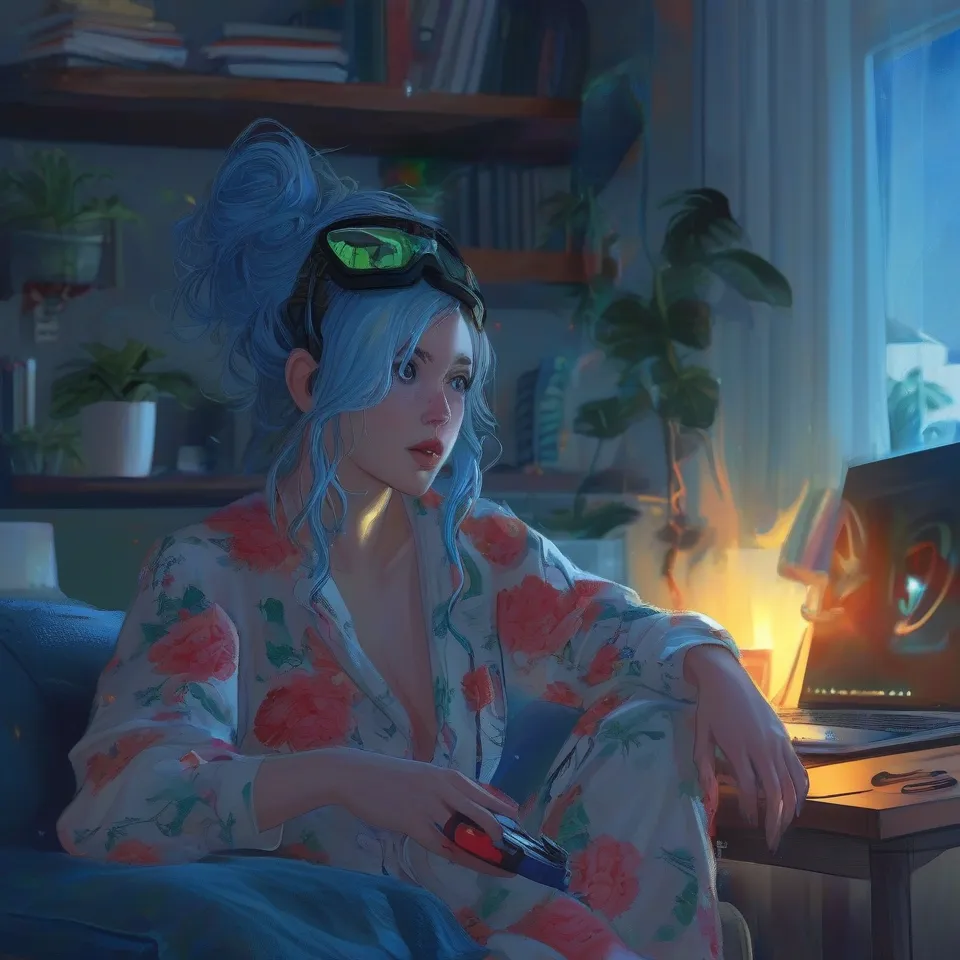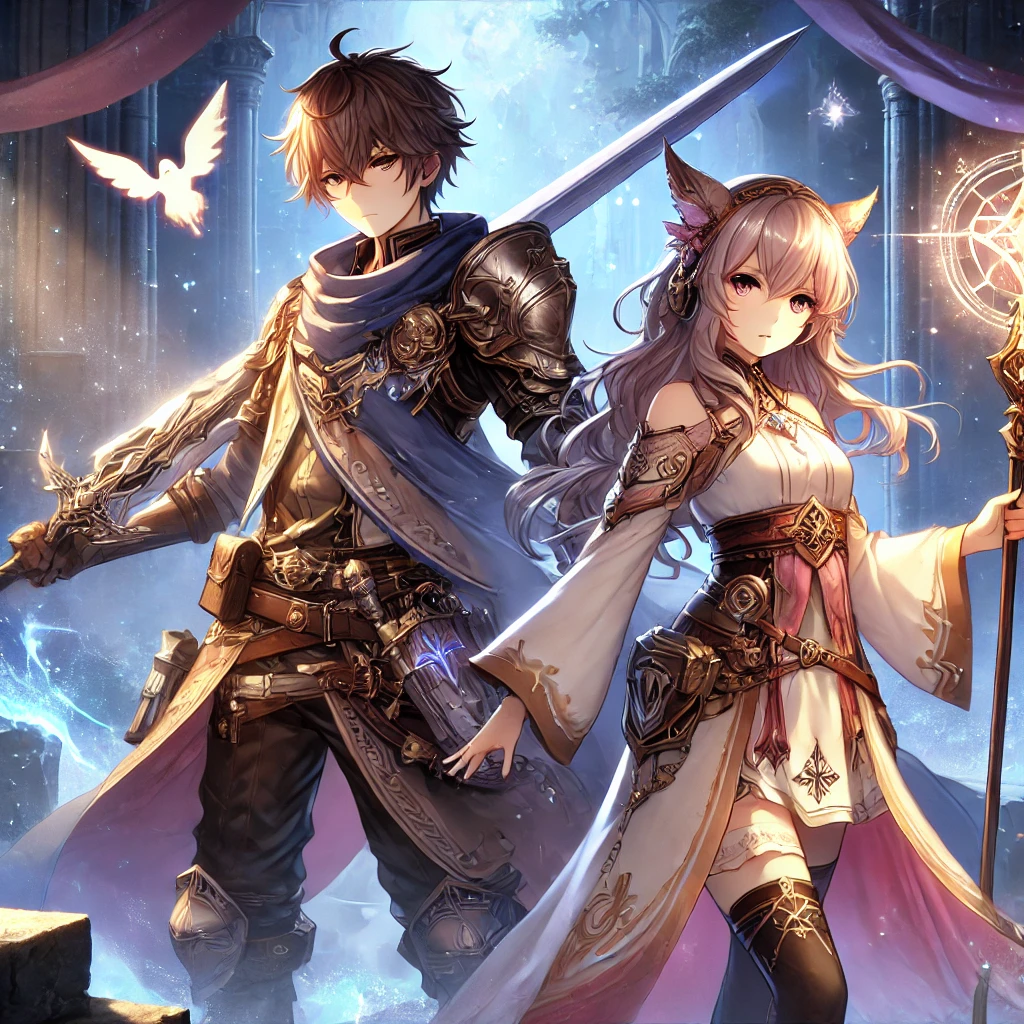Article Structure:
- Introduction to Recovery of an MMO Junkie
- Overview of the anime, including its release date, production studio (Signal.MD), and the premise.
- Highlight the appeal of the story, which follows the protagonist's escape from reality into the world of MMORPGs.
- Mention the balance of romance, comedy, and drama that makes the series engaging for a wide audience.
- Character Profiles and Relationships
- Introduce the main characters, including Moriko Morioka and Yuta Sakurai.
- Explore their development and interactions both in the online game and in real life.
- Discuss how the series presents relatable experiences of connection and identity through gaming.
- Plot Overview and Key Story Arcs
- Outline the main plot, focusing on Moriko’s transition from real life to her online persona.
- Discuss key story arcs, including her evolving relationships with fellow players and her journey toward self-acceptance.
- Highlight the mix of online and offline interactions that drive the narrative.
- Themes of Escapism and Self-Discovery
- Analyze the central themes of the anime, such as the role of escapism in coping with real-life challenges.
- Discuss how the series portrays the impact of online communities on personal growth and relationships.
- Explore how "Recovery of an MMO Junkie" tackles the journey of self-discovery in both virtual and real worlds.
- Cultural Impact and Reception
- Analyze the reception of the series among fans and critics, both in Japan and internationally.
- Discuss its impact on the representation of online gaming and adult life in anime.
- Mention any awards, recognitions, or lasting influence on the slice-of-life and romance genres.
Character Profiles and Relationships in "Recovery of an MMO Junkie"

In "Recovery of an MMO Junkie," the central characters are Moriko Morioka, a 30-year-old NEET who has retreated from society into the world of online gaming, and Yuta Sakurai, a fellow player who leads a seemingly perfect life both in-game and in reality. Moriko’s journey of self-discovery and emotional healing begins as she adopts the male avatar, Hayashi, in the MMORPG world, allowing her to escape her everyday struggles and rediscover joy through her interactions with others.
The series delves into the evolving relationship between Moriko and Yuta, showing their connections both within the game and in real life, though they initially remain unaware of each other’s true identities. Their online personas, Hayashi and Lily, form a strong bond, which gradually crosses over into their real-world lives, adding depth to their character arcs. Through these interactions, the show explores themes of identity, social anxiety, and how people often present different versions of themselves online versus in reality.
"Recovery of an MMO Junkie" masterfully highlights the emotional experiences of connection and belonging in a digital world. Moriko and Yuta’s growth is a relatable reflection of how gaming can be a form of escapism, but also a way to forge meaningful relationships. Their personal development is driven by the contrast between their virtual and real-life selves, making the story both heartwarming and engaging for viewers.
Plot Overview and Key Story Arcs in "Recovery of an MMO Junkie"

"Recovery of an MMO Junkie" follows the journey of Moriko Morioka, a 30-year-old woman who, after leaving her corporate job, retreats from the stresses of the real world and immerses herself in the online realm of MMORPGs. Moriko creates a male avatar named Hayashi and enters the virtual world, where she finds solace and a sense of belonging that she couldn't achieve in her offline life. This transition marks the beginning of her quest for self-acceptance and emotional healing.
The series delves into key story arcs that explore Moriko's interactions with fellow players. One of the central arcs focuses on her growing bond with Lily, a female avatar controlled by Yuta Sakurai, a seemingly successful businessman in the real world. Unbeknownst to them, their online connection begins to influence their real-life interactions, leading to a blend of both online and offline worlds. As Moriko navigates her virtual relationships, she also starts to confront her insecurities and the reasons behind her withdrawal from society.
Throughout the anime, the balance of online and offline experiences drives the narrative forward. Moriko’s journey is not only about escaping reality but also about rediscovering herself through the connections she forms in the game. As her relationships with other players evolve, so does her understanding of herself, which ultimately leads her towards self-acceptance and the courage to face her real-life challenges.
"Recovery of an MMO Junkie" skillfully intertwines the humorous and heartfelt moments of Moriko's virtual adventures with her real-world struggles, creating a story that resonates with viewers who have experienced similar feelings of disconnection or escapism. The anime captures the complexities of identity and connection, making it a relatable and engaging watch for a broad audience.
Themes of Escapism and Self-Discovery in "Recovery of an MMO Junkie"

"Recovery of an MMO Junkie" tackles the complex themes of escapism and self-discovery, offering viewers a relatable exploration of how online worlds can serve as both a refuge and a space for personal growth. The series centers on Moriko Morioka, who, after leaving the corporate grind, seeks solace in the virtual realm of MMORPGs. This decision to retreat from reality reflects a common theme in today’s society: the desire to escape overwhelming life pressures through immersive digital experiences.
Escapism is a central theme in the anime, as Moriko finds comfort in her online avatar, Hayashi, allowing her to disconnect from the anxieties and expectations of the real world. Through this virtual persona, she forms new connections and regains a sense of purpose, which she felt she had lost in her offline life. The anime portrays this digital escape not as a form of avoidance but as a way for Moriko to rebuild her confidence and find herself again. The series sensitively explores how people use online communities to cope with their struggles and the positive role that these spaces can play in fostering emotional resilience.
Another important theme in "Recovery of an MMO Junkie" is the journey of self-discovery. While Moriko initially uses the virtual world to distance herself from her real-life issues, her experiences within the game ultimately lead her towards confronting her personal challenges. The relationships she builds online, particularly with Lily (Yuta Sakurai), become a mirror for her offline world, encouraging her to reflect on her choices and reconsider her withdrawal from society. This dual journey of self-discovery—both in the virtual world and the real one—highlights the transformative power of connections, whether they are made through a screen or face-to-face.
The anime also delves into the impact of online communities on personal growth and relationships. Moriko’s interactions with other players illustrate how digital friendships can influence real-life change. The series shows how these online bonds can serve as catalysts for self-improvement, encouraging individuals to embrace their true selves and seek out meaningful connections in the physical world. In "Recovery of an MMO Junkie," the virtual world is not just a place for escape but also a pathway to healing and self-acceptance.
Through its nuanced portrayal of escapism and self-discovery, "Recovery of an MMO Junkie" resonates with viewers who have found themselves balancing their real and digital lives. The anime masterfully captures the struggles of modern life and the ways in which online spaces can offer both refuge and a means of rediscovering oneself.
Cultural Impact and Reception of "Recovery of an MMO Junkie"

"Recovery of an MMO Junkie" has received praise from both fans and critics for its refreshing portrayal of online gaming and adult life, resonating with a diverse audience in Japan and internationally. The series' unique focus on an adult protagonist navigating both the real world and an MMORPG stands out in a genre often dominated by younger characters and traditional romantic tropes. This aspect has contributed to the show's positive reception, especially among viewers who appreciate its relatable depiction of modern challenges.
In Japan, the series was lauded for its heartfelt storytelling and its blend of romance, comedy, and drama. The character of Moriko Morioka, a 30-something woman seeking solace in a virtual world after quitting her corporate job, struck a chord with many viewers, particularly those who have experienced similar pressures in their personal and professional lives. Internationally, the anime's themes of escapism and self-discovery resonated with fans who see gaming as both a hobby and a form of connection in an increasingly digital world. The depiction of Moriko's journey from isolation to reconnection through her online relationships adds a layer of depth that distinguishes the series from typical romantic comedies.
Critics have also highlighted the anime’s nuanced portrayal of online gaming. "Recovery of an MMO Junkie" captures the intricacies of MMORPGs, from the camaraderie among players to the way virtual worlds can impact real-life emotions and decisions. The series does more than just represent gaming; it explores the emotional realities of those who turn to these platforms for friendship, support, and a sense of belonging. This portrayal has garnered praise for its authenticity and for bringing attention to the often-overlooked adult gaming community in anime.
The series' cultural impact extends beyond its storyline, influencing how adult life and online gaming are depicted in anime. "Recovery of an MMO Junkie" successfully bridges the gap between slice-of-life storytelling and digital escapism, showcasing how these two worlds intertwine. Its approach to adult relationships—both online and offline—offers a fresh perspective in a genre that frequently focuses on younger characters and more conventional romantic narratives. The show has inspired conversations about the balance between real-life responsibilities and online identities, making it a standout entry in the slice-of-life and romance genres.
Though the series did not receive widespread awards, it has left a lasting impression on its audience and earned recognition for its unique take on romance and gaming. The anime's relatable themes, combined with its charming characters and thoughtful exploration of modern life, have cemented its place as a beloved series within the anime community. Its influence can be seen in the growing interest in anime that explores the intersection of digital and real-world experiences, particularly among adult protagonists.





